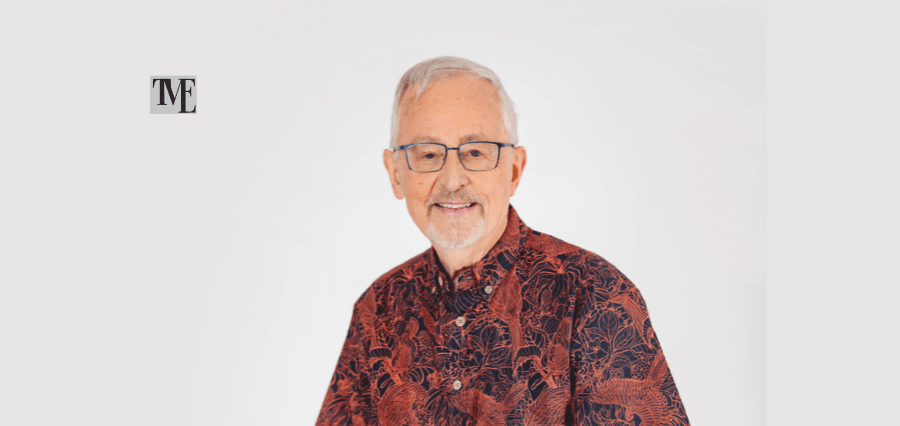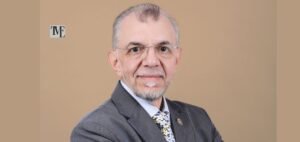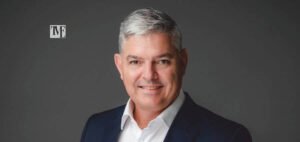In a world overflowing with data, where information is often mistaken for knowledge, the true challenge lies in converting abstract theory into actionable insight. Richard Larson stands out as a thinker who has done precisely that—relentlessly pursuing the practical application of complex systems and data models to solve real-world problems. From revolutionizing New York City’s 911 emergency response system to leading educational reform through technology-enabled platforms, his legacy is built on the rare ability to merge intellect with impact.
Richard Larson’s story is not merely one of academic brilliance but of a relentless quest to mold ideas into instruments of societal progress. As a pioneer in operations research, he has constantly sought to understand how the world’s intricate systems—urban logistics, healthcare, emergency response, or education—can be optimized for the betterment of people’s lives. Rather than remaining within the cloistered walls of academia, he chose to step into the chaos of the real world, equipped with the tools of data modeling, systems thinking, and deep empathy.
At the heart of his journey lies a singular belief: that knowledge, when wielded wisely, is a force that can reshape cities, transform systems, and elevate the human experience. From his first fascination with physics in high school to his leadership in modeling urban service systems and mentoring future leaders at MIT, Richard Larson has exemplified what it means to be both a scholar and a changemaker.
Seeing the World Through Operational Physics
From a young age, Richard Larson gravitated toward disciplines that explained the workings of the world with clarity and elegance. It was physics—more than chemistry or biology—that captivated him, offering universal principles through which complexity could be understood. This curiosity eventually led him to the field of operations research (OR), which he fondly describes as “the physics of the world we operate in.” It provided a framework that allowed him to model not just physical forces but the human-driven dynamics of systems like traffic, emergency response, and education.
According to Richard, operations research is not simply a set of analytical tools—it’s a worldview. It teaches one to deconstruct problems into their fundamental parts, to model them rigorously, and to derive actionable strategies that improve outcomes. Over the decades, this worldview has informed everything from the way ambulances are dispatched in a city to how vaccines are distributed during a pandemic. His enthusiasm for OR is palpable, not just because it answers questions, but because it continuously invites new ones.
From Theory to Tangible Change
Richard Larson’s approach to research has always been grounded in real-life application. Early in his career, he authored Urban Police Patrol Analysis, which earned the Lanchester Prize and became foundational reading for those aiming to reform emergency response systems. Later, his collaboration with Amedeo Odoni on Urban Operations Research offered a structured blueprint for applying OR methods to public-sector challenges, earning widespread acclaim in both academic and policy-making circles.
Beyond publishing over 175 papers, Richard’s influence is most vividly seen in the impact of his ideas. For example, his “Queue Inference Engine” was an early use of data analytics in service systems, predicting wait times and system bottlenecks. The “Hypercube Queueing Model” became another pioneering tool in emergency services, cited hundreds of times and applied internationally. These are not just theoretical contributions—they have real, measurable outcomes, often improving lives in high-stakes environments.
Improving Emergency Response in New York City
Among Richard Larson’s most impactful achievements was his work with New York City’s 911 system. When brought in to consult on the new emergency response system, he encountered a city grappling with inefficiencies that could cost lives. Rather than merely suggesting theoretical improvements, Richard immersed himself in the field—interacting with dispatchers, analyzing workflows, and building models that revealed the system’s weaknesses.
His optimization of operator scheduling and deployment significantly reduced call waiting times and response delays. Though exact statistics weren’t always available, he’s confident the changes led to faster interventions and saved lives. More importantly, he documented the process, allowing other cities to replicate and adapt the methodology. It was a classic Richard Larson solution: data-informed, rigorously modeled, and designed for scalable real-world application.
Championing Model-Based Thinking
One of Richard’s core philosophies is the power of model-based thinking—a structured way of solving problems by abstracting them into models that reflect real-world operations. Whether addressing traffic congestion, urban planning, or pandemic response, he views models as tools that uncover hidden dynamics and inform smarter decision-making.
To broaden access to this mindset, Richard authored Model Thinking for Everyday Life: How to Make Smarter Decisions. His goal was to make the principles of operations research accessible not just to academics, but to everyday citizens—students, professionals, policymakers—anyone who seeks to understand and improve the systems around them. It’s another example of his belief that knowledge only becomes powerful when it is shared, understood, and applied.
Creating Value Across Disciplines
Richard has always seen value in crossing disciplinary boundaries. He views operations research as inherently interdisciplinary, blending mathematics, engineering, economics, public policy, and even psychology. His research into queuing theory, logistics, and workforce planning seamlessly interacts with issues in healthcare, education, and city planning. His award-winning paper on H1N1 vaccine distribution, co-authored with Anna Teytelman, is a testament to this cross-sectoral approach—combining epidemiology with operations modeling to inform national policy.
In another instance, his collaborative study STEM Crisis or STEM Surplus? Yes and Yes, co-authored with Yi Xue, challenged prevailing narratives around workforce readiness. The paper earned the U.S. Department of Labor’s Lawrence M. Klein Award and drew attention from The New York Times, proving how rigorous analysis can shape public discourse.
Innovating Education Through Technology
Richard Larson’s contributions extend far beyond systems and statistics. From 1995 to 2003, he directed MIT’s Center for Advanced Educational Services, pioneering the use of online and blended learning long before it became mainstream. He later launched the Learning International Networks Consortium (LINC), a global MIT-based initiative that promotes education equity and innovation.
Today, Richard continues this mission through MIT BLOSSOMS (Blended Learning Open Source Science or Math Studies), a program that delivers high-quality STEM content to underserved students worldwide. He is passionate about how the internet and AI can democratize education—but also deeply concerned about the potential downsides. He cautions against an overreliance on AI in learning environments, advocating instead for balanced, human-centered education that fosters curiosity, integrity, and critical thinking.
Standing for “Boots-on-the-Ground” Research
Despite the rise of AI and digital modeling, Richard remains a staunch advocate for fieldwork. He believes that no matter how sophisticated simulations become, they can never fully replace firsthand observation. He often refers to “Boots on the Ground” as an essential principle in his research. To truly understand how systems operate—and how they fail—one must experience them directly, in context.
This philosophy has informed his work from the start. Whether redesigning 911 systems or advising city planners, he never relied solely on datasets; he immersed himself in the environments he was trying to improve. In doing so, he ensured his solutions were not just theoretically sound but practically effective.
Reimagining Education in the AI Era
As a thought leader in education, Richard Larson is both optimistic and cautious about the role of artificial intelligence. He praises the internet’s ability to provide access to elite-level learning globally but warns against passivity in learners. In an age where AI can generate essays, solve equations, and pass exams, he believes the human element—curiosity, creativity, and moral reasoning—must remain at the center of education.
He urges institutions to integrate AI thoughtfully, not as a replacement for human effort, but as an enhancer of it. For Richard, the goal is to build educational ecosystems that empower students, not displace their potential.
Mentoring the Next Generation
Perhaps one of Richard’s most lasting contributions is his role as a mentor. Throughout his time at MIT, he has guided hundreds of students—not only through coursework but through the ups and downs of research life. He believes mentorship is about offering both support and challenge, helping students navigate failure while encouraging their boldest ideas.
He often recalls the influence of his own mentor, who once provided critical yet kind feedback that reshaped his approach to teaching. It was a moment that solidified his belief in honest, constructive guidance—a philosophy he’s carried into every advising relationship since.
Championing Interdisciplinary Collaboration
Operating at the crossroads of multiple disciplines, Richard has long argued for breaking down silos within academia. While structural barriers often hinder interdisciplinary work, he believes that proactive leadership and institutional flexibility can encourage the kind of cross-pollination that leads to major breakthroughs. Whether through joint research with epidemiologists, partnerships with city officials, or collaborations with technologists, Richard’s career is a case study in what’s possible when disciplinary walls are lowered.
Navigating the Pressures of Academia
Richard is candid about the increasing pressures on today’s academics—from shrinking funding pools to the relentless demand for publications. Yet, he credits MIT’s culture of intellectual freedom and collaboration for enabling his decades-long journey of innovation and inquiry. He believes that when scholars are empowered to explore their curiosities—and supported in taking risks—they create research that truly matters.
A Life Built on Values and Vision
Reflecting on his career, Richard distills his path down to three guiding principles: authenticity, intellectual courage, and a commitment to mentoring. From writing foundational texts in operations research to transforming emergency systems in America’s largest city, every step of his journey has been driven by these values. His collaboration with Professor Amedeo Odoni on Urban Operations Research is emblematic—not just of academic success but of a life dedicated to impact.
Wisdom Beyond Knowledge
Richard Larson’s story is a powerful reminder that knowledge, in itself, is not enough. What matters is how that knowledge is applied—how it informs decisions, shapes systems, and ultimately, improves lives. His career, rooted in operations research but blooming across education, public policy, and mentorship, offers a template for the modern scholar: rigorous, grounded, interdisciplinary, and always aimed at making a difference.
In an age flooded with information, Richard Larson teaches us how to seek wisdom.





